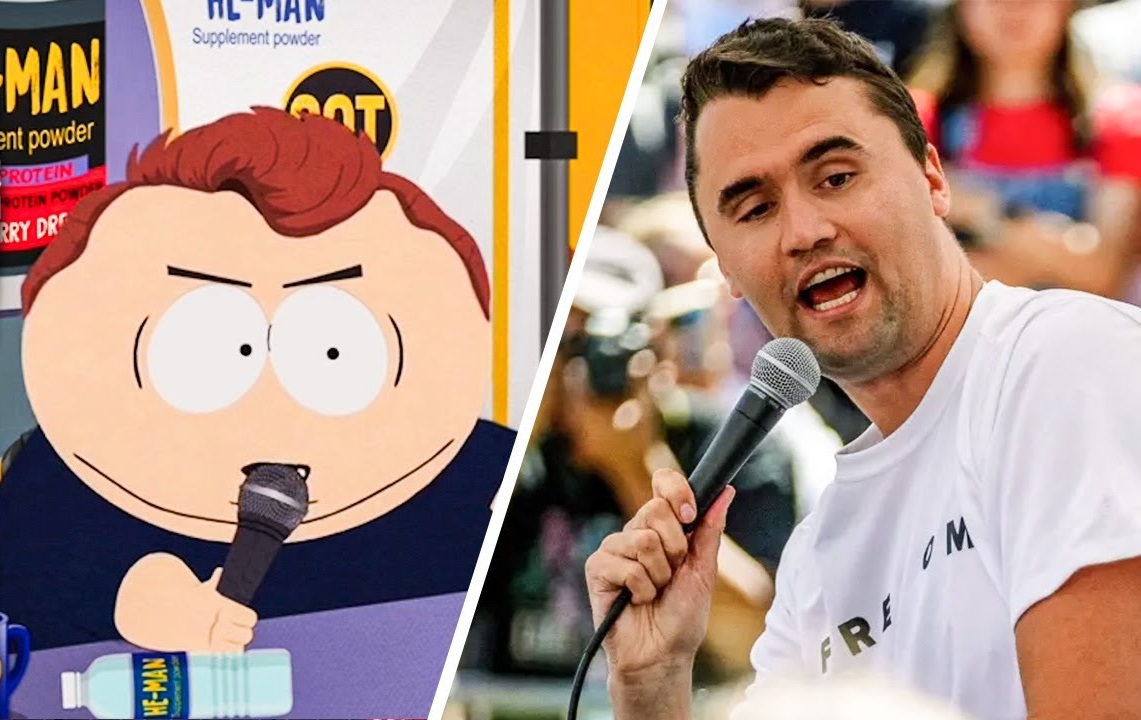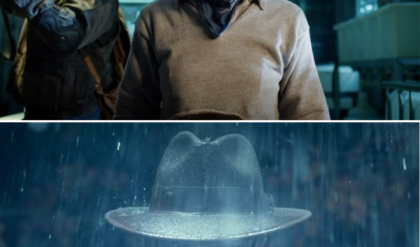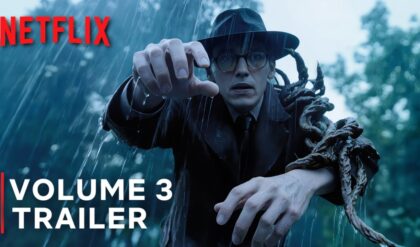🔥 They laughed when South Park turned Charlie Kirk into a cartoon villain, but now the nation’s reeling from a tragedy no one saw coming. A single episode, dripping with satire, has sparked a firestorm that’s tearing at America’s soul. Was it just a joke, or did it ignite something darker? The truth behind this controversial episode will leave you questioning everything you thought you knew about free speech and its consequences. Dive into the chaos—click to uncover the story shaking the country.

On August 6, 2025, South Park aired its Season 27, Episode 2, titled “Got a Nut,” a biting satire that took aim at conservative firebrand Charlie Kirk, the Trump administration, and the culture wars raging across America’s campuses. The episode, like much of the show’s 28-year run, was classic Trey Parker and Matt Stone: crude, irreverent, and unapologetic. In it, Eric Cartman, the show’s resident bigot, adopts Kirk’s signature hairstyle and “Prove Me Wrong” debate style, mocking the conservative activist’s campus tours while competing with classmate Clyde Donovan for a fictional “Charlie Kirk Award for Young Masterdebaters.” Kirk himself laughed it off, calling it a “badge of honor” on Fox News and changing his X profile picture to Cartman’s Kirk-inspired look. But just over a month later, on September 10, 2025, Kirk was assassinated during a speech at Utah Valley University, and the episode’s playful jabs turned into a lightning rod for outrage. Comedy Central pulled the rerun from its cable lineup hours after the shooting, sparking a national debate about satire, responsibility, and the thin line between humor and harm. How did a cartoon spark such fury, and what does it reveal about a country on edge?
The Episode That Started It All
“Got a Nut” was quintessential South Park. The main plot followed school counselor Mr. Mackey, fired due to federal budget cuts, joining ICE raids alongside a parody of Homeland Security Secretary Kristi Noem, who infamously shoots a dog named Krypto. But the B-plot stole the spotlight: Clyde Donovan, voiced by co-creator Trey Parker, launches a right-wing podcast spouting offensive views—claiming “you can’t trust Jews” and “women belong at home”—to bait “woke” students into debates for viral clout. Cartman, jealous of Clyde’s success, dons Kirk’s slicked-back hair and black T-shirt, taking over the podcast to “masterdebate” college kids. The episode ends with Clyde winning the “Charlie Kirk Award,” complete with a trip to Trump’s Mar-a-Lago, leaving Cartman fuming. It was a sharp jab at Kirk’s Turning Point USA, known for its campus “Professor Watchlist” and debates that often went viral for “owning” liberal students.
Kirk, 31 at the time, took it in stride. In a July 2025 interview with Fox News, before the episode aired, he called the parody “hilarious” and a sign of his movement’s cultural impact. “I used to watch South Park in high school,” he said. “It’s an equal opportunity offender.” He even posted a clip on TikTok, captioning it, “Not bad, Cartman 😂😂,” and sold “Master Debater” shirts on his website, with proceeds funding TPUSA’s fall tour. But the episode’s depiction of Kirk’s debate style—Cartman admitting to editing out strong counterarguments—stung some conservatives, who saw it as accusing Kirk of bad faith. Still, Kirk embraced it, telling his 8.5 million TikTok followers, “If your name’s in South Park, that’s a big win.”
The Assassination That Changed Everything
On September 10, 2025, Kirk was mid-speech at UVU, fielding a “Prove Me Wrong” question about mass shootings, when a sniper’s bullet struck his throat. The shooter, 22-year-old Tyler Robinson, a UVU dropout, fled but was arrested the next day after his father turned him in. The nation erupted. Trump called Kirk a “martyr for truth” and vowed “no mercy” for the killer. Bullet casings etched with “antifascist forever” and “Bella Ciao” pointed to a political motive, fueling conservative claims of left-wing radicalization. Hours after the shooting, Comedy Central swapped the scheduled rerun of “Got a Nut” for an earlier episode, “Sermon on the Mount,” and announced it would not air the Kirk parody in its linear rotation, though it remained on Paramount+.
The decision ignited a firestorm. On X, MAGA voices like Jesse Kelly and a TPUSA staffer blasted South Park, with Kelly saying, “They thought it was funny to turn Charlie into a cartoon joke. Now his wife is planning a funeral.” Others went further, claiming the episode “fomented hatred” that led to Kirk’s death. “Trey Parker and Matt Stone have blood on their hands,” one user posted, while another called for the show’s cancellation. The backlash wasn’t universal—some defended South Park’s right to satire, with a Reddit thread arguing, “Short of showing Cartman getting assassinated, they have nothing to do with this.” But the timing was brutal: Kirk was killed doing exactly what the episode mocked—debating students on a college campus.
The Satire Debate: Free Speech or Reckless Provocation?
South Park has never shied away from controversy. From mocking Scientology to depicting Muhammad, Parker and Stone have built a career on pushing boundaries. Their $1.5 billion Paramount deal in 2021 ensured five more seasons, cementing their status as cultural provocateurs. But Kirk’s death raised a question: Does satire have limits when it targets real people in a polarized climate? The episode didn’t call for violence, but critics argued its portrayal of Kirk as a grift-hungry showman—complete with Cartman’s line, “I edit out the ones who argue back well”—could inflame already tense divisions. A New York Post report quoted a TPUSA staffer saying, “Comedy has consequences. Charlie was targeted in the culture before he was targeted in real life.”
On the flip side, defenders pointed to South Park’s history of equal-opportunity roasting. The same season took shots at Trump, JD Vance, and even progressive sacred cows like DEI initiatives. “It’s what they do—nobody’s safe,” a fan wrote on Reddit, noting that Kirk himself embraced the parody. Others argued that blaming a cartoon for a real-world murder was a stretch, especially without evidence the shooter, Robinson, was influenced by the episode. His Discord messages, turned over to the FBI, focused on Kirk’s anti-trans and anti-DEI rhetoric, not South Park. Still, the optics were grim: a show that thrives on outrage culture mocking a man who’d become a martyr for it.
The Cultural Fault Lines
Kirk’s assassination wasn’t just a personal tragedy—it was a flashpoint for America’s deepening divide. Turning Point USA, which Kirk co-founded at 18, had grown into a $100 million machine, with 3,000 campus chapters and a knack for mobilizing Gen Z conservatives. His “Prove Me Wrong” debates, often viral for “destroying” liberal students, made him a hero to some and a villain to others. His Leviticus quotes on LGBTQ+ issues and claims about “white underprivilege” drew protests, including at UVU, where counter-demonstrators had clashed with TPUSA events before. Robinson, the alleged shooter, fit a profile: a gamer, trans ally, and UVU dropout with a history of anti-TPUSA protests, radicalized in part by online echo chambers.
The South Park episode became a Rorschach test. For conservatives, it was proof of a “woke” culture weaponizing media against them. Elon Musk, amplifying the backlash on X, called the episode’s timing “suspicious” and accused universities of radicalizing students like Robinson. “The forces that turned him into a murderer need to be stopped,” he posted, tying it to broader rants about media bias. Liberals, including authors like Gretchen Felker-Martin, countered that Kirk’s own rhetoric—anti-trans, anti-immigrant—fueled the rage that made him a target. Barack Obama and Gavin Newsom condemned the killing, but their calls for unity were drowned out by Trump’s vow to award Kirk the Presidential Medal of Freedom posthumously.
The Media’s Role and the Pull from Cable
Comedy Central’s decision to pull “Got a Nut” wasn’t unprecedented. The network has yanked episodes before, like those depicting Muhammad, after threats or backlash. Sources told The Hollywood Reporter the move was “temporary,” meant to avoid inflaming tensions, as cable viewers might stumble on the episode passively, unlike Paramount+ streamers who choose it deliberately. Fans on Reddit largely supported the call, with one writing, “It’s the polite thing to do.” But the decision fueled accusations of censorship, with X users claiming it proved South Park knew it had crossed a line. The episode’s availability on streaming platforms, however, muddied the narrative—available but not broadcast, a half-measure that satisfied no one.
The media’s handling of the controversy didn’t help. CNN and MSNBC focused on Kirk’s “divisive” legacy, replaying his controversial clips while skimming over his final moments discussing mass shootings—an irony Musk highlighted on X. Fox News leaned into martyr imagery, but even they glossed over the episode’s specifics, framing it as a left-wing attack. The New York Times noted the “civil war rhetoric” from MAGA supporters, but avoided diving into the satire’s content. This selective framing fed the outrage cycle, with X users on both sides amplifying their takes—some calling for Parker and Stone’s heads, others defending their right to offend.
What’s Next for South Park and America?
The fallout is far from over. TPUSA has launched a memorial fund for Kirk, already past $10 million, and vows to double down on his campus mission. The trial of Tyler Robinson, set for 2026, will be a media circus, with federal charges and a possible death penalty looming. South Park returns with new episodes on September 23, and Parker and Stone have stayed silent—no comment on the shooting or the episode’s removal. Given their history, they’ll likely lean into the controversy, perhaps with a meta-episode mocking the outrage itself. But the stakes feel higher now. Political violence is spiking—Trump’s 2024 ear graze, a Minnesota rep’s killing in June 2025—and South Park’s role as a cultural provocateur is under scrutiny like never before.
The episode’s legacy is a mirror to America’s fractures. It didn’t cause Kirk’s death—no evidence links Robinson to the show—but it amplified a cultural war where every joke is a potential landmine. Kirk’s own words, calling the parody a “badge of honor,” clash with the grief of his widow, Erika, who called for “justice” at a Phoenix vigil. The debate over satire’s limits isn’t new, but in a nation where a cartoon can be blamed for a murder, it’s a conversation we can’t avoid. As one X user put it, “South Park didn’t pull the trigger, but it sure loaded the gun with ideas.” Whether that’s fair or not, the episode’s shadow looms large, a reminder that in a divided America, even laughter can draw blood.





